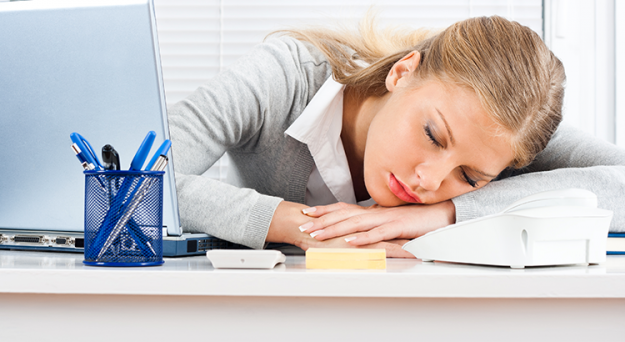Siesta Fiesta: Why taking naps is good for you
mis à jour le 14 July 2015 à 18:30It is often frowned upon at the office, yet taking power naps help you de-stress and re-energize, improving your memory and creativity. Touché!
The word 'siesta' comes from the Latin word 'sixta', which means 'the sixth hour of the day'. This explains why naps are usually taken at midday. Today, it is often said that naps are exclusive to babies and seniors. Outside these two age groups, napping is equivalent to a waste of time and indicates laziness. In fact, there's nothing very positive about the short rest, whether done at the office or at home. But nowadays a lot of people are sleep deprived.
The experts speak up
"A nap lasting 10 to 20 minutes within the first hour after lunch has nothing to do with laziness," says Dr Jean-Jacques Menuet, a sports physician and relaxation therapist. "Digestion causes drowsiness, you have to acknowledge that without feeling guilty."
Moreover, studies have shown the health benefits and the increased productivity tied to napping. "Naps restore our memory capacity and relax us by reducing our levels of cortisol (stress hormone), resulting in a positive effect on the cardiovascular system, hypertension, risks of overweight and mood!" By boosting our attention span, the small slumber also helps prevent accidents on the road. Drowsiness is one of the primary causes of road accidents, especially between 1 and 3 in the afternoon, according to the French Motorway Companies (ASFA). Somnologist Dr. Eric Mullens, head of the sleep laboratory of Alby Bon Sauveur foundation, closing your eyes for a 4-second 'micro sleep' when driving equates to driving for 100 meters!
20 minutes but definitely not more
"I can't bring myself to (nap)", "If I sleep, I wake up feeling muddy," or "I'm never going to lie down at the office! It's true, taking naps is not as easy as it sounds. It's not rocket science; you just have to follow a few rules and adapt to the space and time available to you. "No need to lie down in the dark," says Dr. Mullens. "Nor is it necessary to keep saying 'I must sleep'."
Simply sit down in a chair at the office, on the bus or the car park if you're driving, and relax until you reach 'the edge of sleep'. A few minutes of this kind of slight sleeping can be enough to gain the benefits of napping. "A 20-minute nap, which is more beneficial than a cigarette break, is equivalent to two hours of sleep in terms of physical and physiological recovery," says Dr Menuet.
Anything beyond that and we risk sinking into a sleep too deep and waking up with the unfavourable sensation called sleep inertia or confusion. You'll feel groggy and grumpy, so leave the prolonged nap for the weekend. "Over-napping can also cause insomnia at night," warns Dr. Menuet.
In short, naps are just like a drug, take it in the right dose and you'll reap the benefits.
Special thanks to Dr Jean-Jacques Menuet of www.medecinedusportconseils.com and Dr Eric Mullens, author of Apprendre à fair la sieste (Learning to Nap)
Isabelle Soing and Natasha Gan




